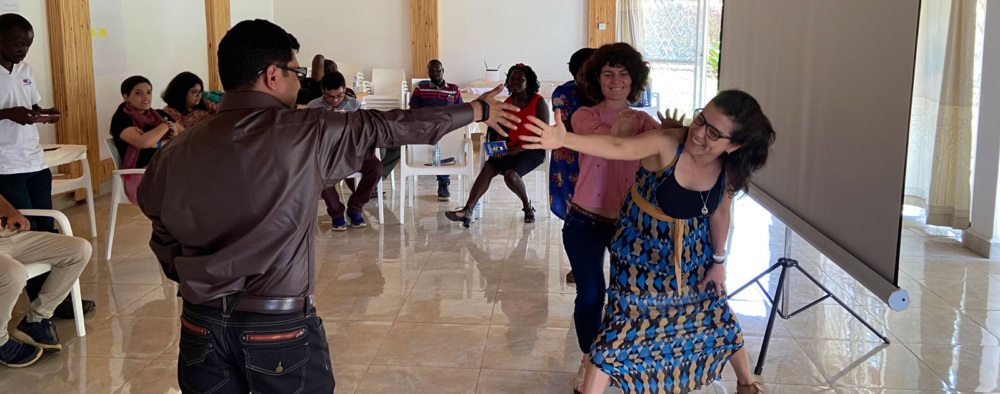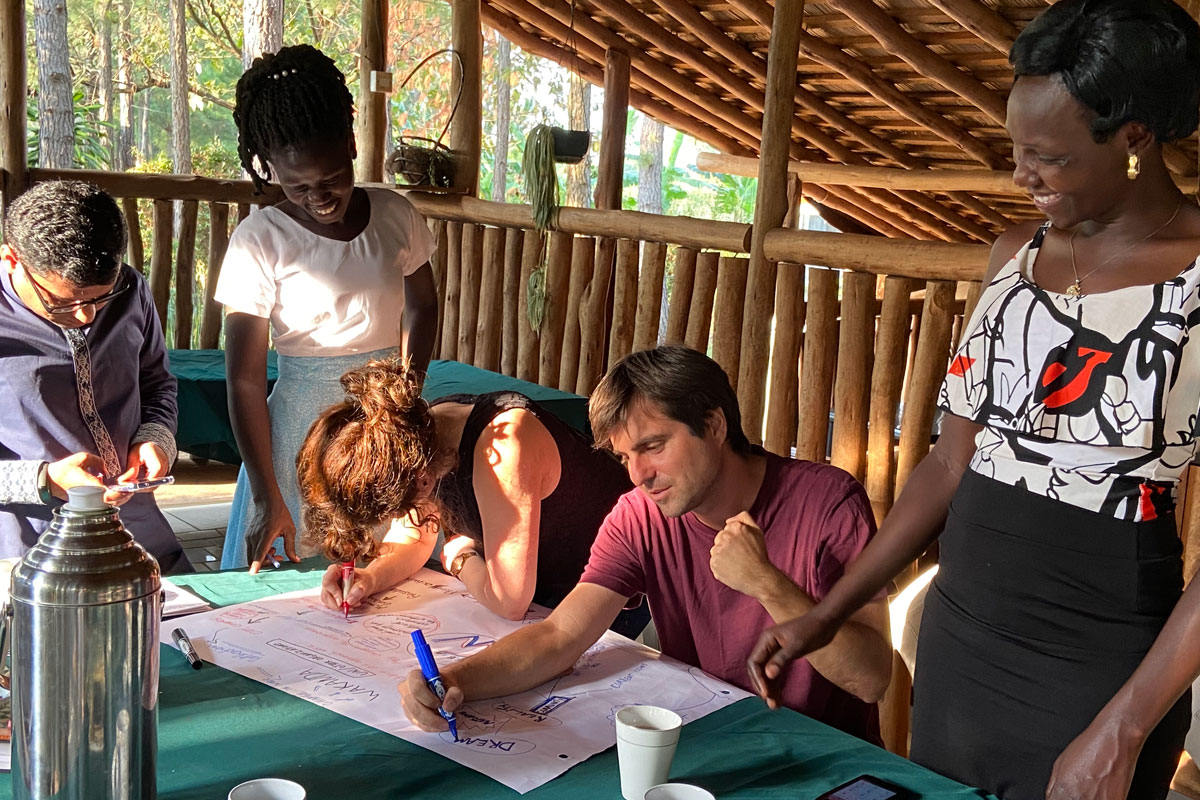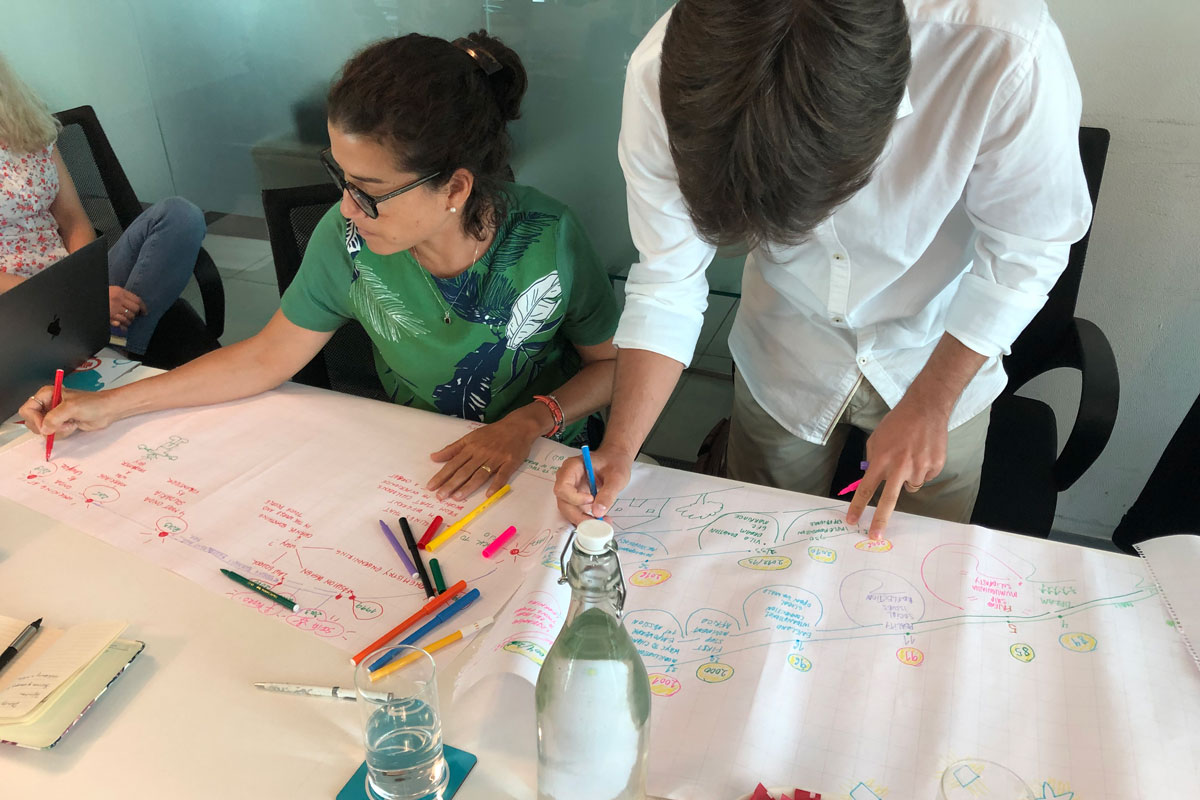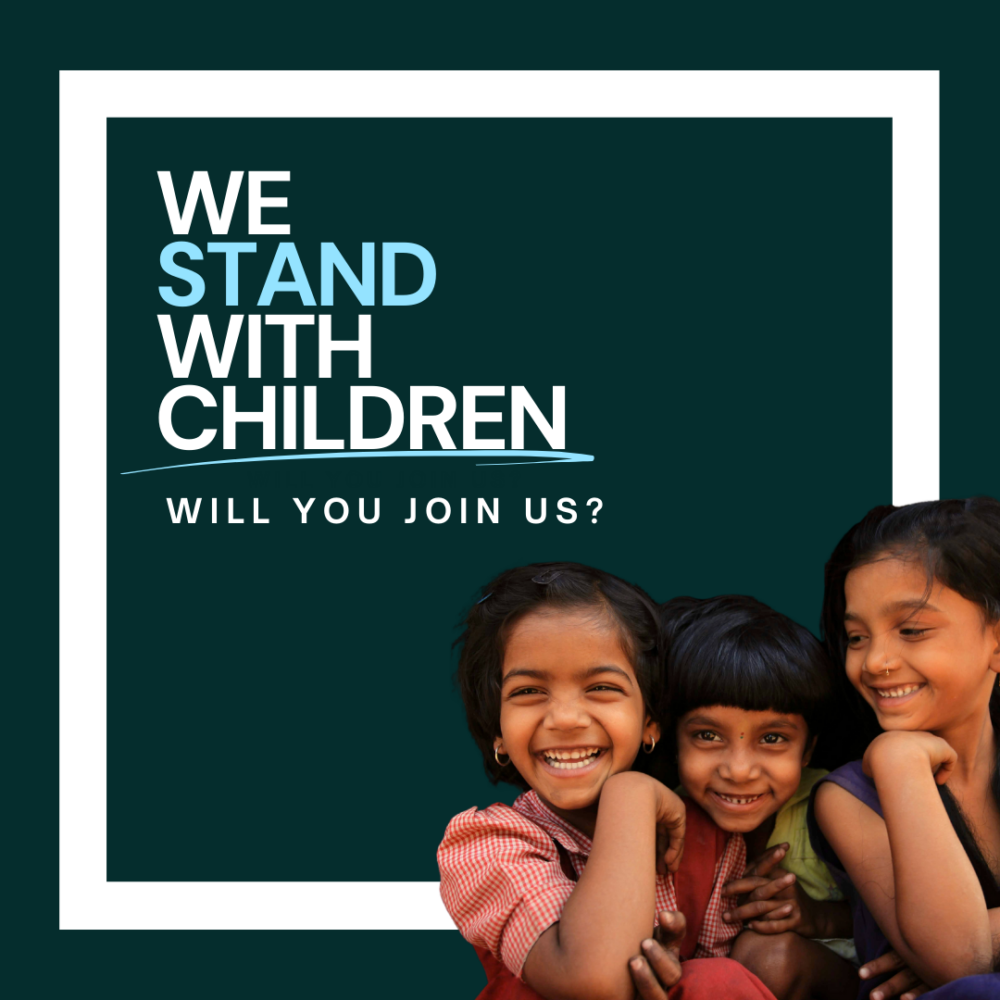
Radical dreaming: #Shiftingthepower through imagination
This post was written by Rodrigo Barraza, Program Manager for the Americas at GFC, and Corey Oser, GFC’s Vice President of Programs.
How do our childhood dreams shape what we become? What can we learn from them? And how can continuing to dream transform the world around us? Rodrigo Barraza, Program Manager for the Americas, and Corey Oser, Vice President of Programs, share their childhood dreams and discuss the role of unfettered imagination in making things happen.
What was your biggest dream when you were a child, Rodri?
When I was a little child, my biggest dream was to be an astronaut. I remember spending many hours in my room looking at a poster of the moon that I had on the wall, imagining that one day I could jump between its craters. I was always daydreaming.
When I went to sleep, however, the dream continued. Suddenly, I became a great explorer, in my white suit and my shiny helmet. A conqueror of the stars.
How about you, Corey? What was your dream when you were a child?
When I was in middle school, our class wrote “future books” about dreams for ourselves and the world. I was fascinated with the mysteries of the body and wanted to be a doctor for women. In my wide child’s mind, I also wanted to divide my time with the theater and be an actor. I saw myself moving around a stage and speaking the words of new characters, draped in clothes of different times and places.
I had learned about the nuclear arms race, and I also wrote about a world where humans beings understood each other instead of inventing such cruel weapons.
What became of your dreams, Rodri?
My dream of being an astronaut never came true, of course. Or maybe it did…
It is true that I have never visited outer space, and the moon remains a mystery to me.
However, I did become an explorer.
Throughout my life, I have had the incredible fortune to travel the world and collect memories, countries, languages, flavors, and above all, stories of courage and hope.
[image_caption caption=”GFC partners draw collective visions for their organizations. © Global Fund for Children” float=””]

[/image_caption]
By collaborating with brave community organizations and with children and youth leaders, I realized that my dream was not a delusion. I just had to look elsewhere for the stars and realize that they were closer than I thought.
I learned that here on earth we still have so many things that can help us cultivate our sense of wonder. We don’t need to get on a rocket for that.
I have to confess that I have never abandoned my dream of going to the moon. But it doesn’t matter if I can’t get there. What that dream has given me is hope. It taught me never to lose my curiosity and imagination. It taught me to keep looking for the extraordinary, even in the smallest things. It has allowed me to maintain – and play with! – my inner child.
What have you learned from your dreams, Corey?
Even though I did not become a medical doctor, the pull in my heart toward care and wellbeing helped chart my path in the world. My dream of becoming a healer for women also planted a seed in my spirit. For many years, I worked with people who were boosting women’s strength and courage to change their lives. This thread connects the past with present, as I now support many organizations that work with girls to claim their power.
Even though I did not become a professional actor either, I had the chance to act in plays, and I even wrote a short one of my own. I loved inhabiting people’s experiences through their words and feeling the electrifying exchange of energy from creating with a group. As I later came to lead groups off stages and in organizations, I tried to cultivate the feeling of everyone moving and creating together.
Even though I did not rid the world of nuclear weapons, my dream for people to understand each other better has emerged in many ways.
For me, dreaming is the best way to imagine a new world into being. Dreaming gives power to everyone to create visions of what we have not yet seen.
What does it mean to dream, Rodri?
Dreams have power. They fill your world with possibilities. They allow you to have a glimpse of new worlds, new paths, and new questions. They allow you to know your deepest wishes and desires.
Dreams connect you with life: with the past, with the present and the future. With what you are and what you want to be.
As people grow up, it seems that dreaming loses its power. We confine dreams to a private space, we feel embarrassed, and we hide them away from the light.
People, and the organizations they inhabit, adopt two main attitudes toward dreams:
- We think of them as an act of naivety or irresponsibility. “Dreaming is for fools,” we tell ourselves. “In this world, you have to be realistic if you want to achieve your goals.” The world is divided into “dreamers and doers,” with dreamers seen as less valuable.
- We think of dreams as no different from planning. “Dreaming is a good thing,” we think, “you just have to turn the dream into a series of steps and concrete tasks to make it come true.” And so, little by little, the dream ceases to be a dream and becomes an ordinary plan. A recipe to follow step-by-step, with zero space for surprises.
It is urgent to recover and defend our right to dream, to imagine, to think about new worlds and to work with passion and responsibility to make them possible.
[image_caption caption=”Leaders of GFC partner Onda Solidária in Brazil put their organization’s dream into words. © Global Fund for Children” float=””]

[/image_caption]
Why do you think dreams are important to our work, Corey?
At Global Fund for Children, we recently created a space to share our dreams. Dreams we had as children and dreams we had – and have – as adults. It turned out they were connected.
What is even more amazing, we discovered that each of us, through our work and in our daily lives, continues to nurture and cultivate those dreams, connecting them with our shared dream of a better world for all children and youth.
So we ask ourselves: Is it possible to dream collectively? Is it possible to convert the ability to dream into an organizational strength?
With joy, we realized that it is possible. And it is that collective energy that connects us with thousands of organizations across the globe, that allows us to build trust and grow together.
So… how can organizations spark dreams?
We don’t have all the answers, but we can share some tips that have helped make GFC a family dreaming together, responsibly, and passionately:
- Create safe spaces to dream freely and collectively: These are not rigid operational planning sessions, but spaces to imagine the future and nurture visions for a more beautiful world.
- Focus on the whys rather than the hows: It is too easy to dismiss dreams and the new ideas they conjure as impractical, unrealistic, or too expensive. Don’t dream in a straight line: dare to imagine multiple paths or possibilities. Allow dreams to transform into new questions.
- Spark creativity: Too often, we dismiss doodling or poetry as child’s play, yet tools of creativity can inspire us to imagine new paths and possibilities to change the world. Encourage creativity as you go about the daily life of your organization. See it as essential to your life force and not as an “extra.”
- Break out of old habits: Even moments of fun and connection can become routine and inhibit the imagination. Try new and surprising ways of doing even ordinary things.
- Encourage those your organization serves to envision their dreams: This shifts power toward them to imagine what they want to see for their communities, not what they are waiting for from you.
In the Indigenous communities of the Amazon, people believe that when a person stops dreaming, it is because their death is near. If you can´t dream, you have an illness. Your soul is empty.
So let’s remember the limitless imagination we had as children, and let’s recover and exercise our ability to dream. Alone, and with others. Let’s dream to heal together. To take care of each other.
And let’s not forget that dreaming is a human right. Our right to transform, to change, to search. To be better.
Join us, and dream with us.
Header photo: GFC partners use drama to depict new relationships between organizations, communities, and donors. © Global Fund for Children
